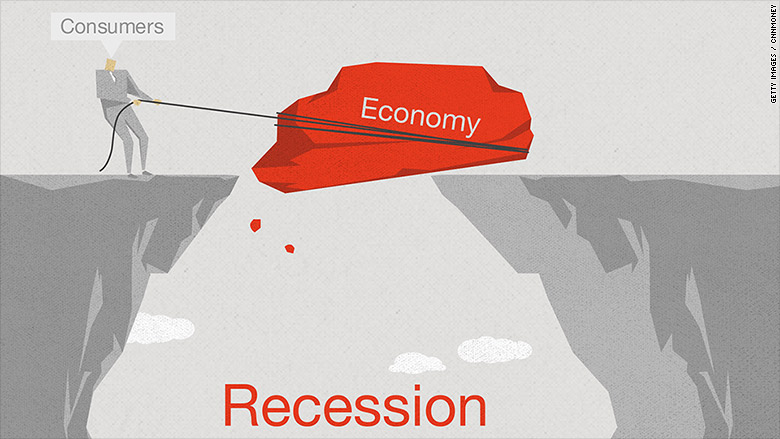BUSINESS ESSENTIAL VOL 3. NO. 18
Dear Esteemed Member,
The recent increased interest rate benchmark from 12 to 14 per cent by the Monetary Policy Committee (MPC) of the Central Bank of Nigeria (CBN) to mitigate inflationary trends and price volatility had sent ripples through the Business Community. We, therefore, committed time to review the decision of the Committee and offer our opinions on the development.
That the economy is passing through a harrowing phase would be an understatement. The Enterprise are introducing several innovations, including cost cutting measures, to stay afloat the murky economic tide. In this edition, we contributed our quota of valuable advice in mitigating the economic distress.
We also shared key conclusions at our recent engagements on your behalf with the Lagos State Water Regulatory Commission. The regular Labour & Employment Law Review, and Upcoming Training Programmes were not left out.
Have a pleasant reading.
Timothy Olawale
Editor
In this Issue:
- Cutting Cost during Economic Downturn
- Possible Impact of the Recent Decisions of the Monetary Policy Committee (MPC)
- Circular: Meetings with the Executive Secretary of the Lagos State Water Regulatory Commission (LSWRC)
- Labour & Employment Law: LABOUR & EMPLOYMENT LAW: Gratuity (Moses Akaigwe vs. Champion Newspapers Limited & Nwadiuto Iheakanwa) (2014) 42 N.L.L.R. Pt 130, P. 234 NIC
- Upcoming Events in the Secretariat
- Upcoming Training Programmes
Manage Stress by Focusing on Your Breath
Like any other leadership capacity, stress management requires self-awareness. Leaders who manage stress effectively are able to recognize signs that they’re approaching their tipping point and consciously, deliberately step back from the edge. The next time you notice your stress levels increasing, take a moment to notice your breath. Start with a couple of strong, long, and deep breaths. Notice the physical sensations that accompany each one. After taking a few of these initial breaths, switch to a technique called “resonant breathing.” Inhale for 10 seconds and exhale for 10 seconds, for a total of six breaths per minute. You may find it helpful to do this while walking; the pace of your steps can provide a regular tempo for each breath. Eventually the rhythm will continue on its own and you can stop timing. Continue to breathe in and out until your state of mind shifts and you feel a sense of control over your emotions.
Adapted from “A simple way to combat chronic stress” by Alexander Caillet, Jeremy Hirshberg and Stefano Petti
Cutting Cost during Economic Downturn

The current economic landscape calls for conscientious efforts in optimizing value from scarce resources, while keeping costs at the minimum. In response to the economic headwinds, organisations have had to adopt various cost-cutting measures over the last few months. Whilst there is nothing wrong in cutting cost, organisations need to realize that they cannot cut their way to prosperity. Overall, a strategic approach is required to navigate the tough times, while focusing on better managing costs and putting in place systems to enhance efficiency in the long run. Otherwise, the cost shed today may still mount again tomorrow, wiping out today’s gains.
With respect to people cost, this principle of managing costs, rather than just cutting cost, can be applied to optimize value for the employer. This involves taking a critical look at employee rewards models and the modus operandi to identify areas for achieving efficiency and cost containment now and in the future. Given that staff cost is often a significant cost item in organisations’ income statements, there is much to be gained in this area, if employers could carry out a comprehensive review of their rewards systems and models.
- Pay Restructuring – If not carefully structured, an organisation’s remuneration framework may encourage cost escalation that is not intended or desirable at this time. For example, the linkage between pay elements and allowances can mean that a minimal change will have unintended multiplier effect. There may be a number of practices within a pay structure that are no longer necessary to continue delivering. Also, if no formal pay band/structure is in place, it will be difficult to manage pay in a cost-efficient manner. For example, how do you determine the amount of promotional increase to award to an employee and which will not be considered excessive or too little? How do you determine the pay of a new hire while ensuring internal and external equity?
- Diagnostic Review of Incentive Schemes – Most organisations have some form of incentive scheme or the other. However, a good number do not have a properly-designed scheme, which aligns with leading practices. This may, therefore, undermine the ability of the scheme to achieve the desired objectives in a cost- efficient manner. The KPMG 2015 Consumer Market Remuneration Industry Survey noted a 17% increase in incentive payouts between 2014 and 2015, at a time when most of the companies struggled with shrinking revenue and profits. If an organization has never reviewed its scheme, it would be difficult to determine the impact it is having on corporate results and employees. You may just be paying out money without commensurate value-add to the business.
- Gratuity Restructuring – Many Gratuity Schemes are still being operated on a Defined Benefits basis. A tough economic period, such as we face now, probably presents an opportunity to begin the conversation with employees and / or unions to restructure Gratuity schemes, making them more affordable and sustainable. This has the potential to save significant cost in the long run, while at the same time curtailing the growing costs to the business.
- Redundancy Management – To optimize costs, organisations have had to right-size and review staff manning levels. If the process is not well-managed, it could have adverse impact on the remaining employees and the business. Organisations must be armed with the right information to take an informed decision on carrying out a redundancy. Also, are there learning outcomes from other organizations that have successfully laid off employees and which can be leveraged upon? How will the employee union be handled? Change Management and a robust communication plan will therefore become extremely important.
Culled from KPMG Advisory Services newsletter
POSSIBLE IMPACT OF THE RECENT DECISIONS OF THE MONETARY POLICY COMMITTEE (MPC)
The Monetary Policy Committee (MPC) of the Central Bank of Nigeria is responsible for formulating monetary and credit policies. In other words, the Committee maintain Nigeria’s external reserves by safeguarding the international value of Nigeria’s legal currency; promote price stability and a sound and efficient financial system in Nigeria.
We reviewed the outcome of the July 25- 26, 2016 meeting and likely implications of the policy on the economy.
Summary of decisions of the Committee, include, to:
- Increase the MPR by 200 basis points from 12 to 14 per cent;
- Retain the CRR at 22.50 per cent;
- Retain the Liquidity Ratio at 30.00 per cent; and
- Retain the Asymmetric Window at +200 and -500 basis points around the MPR
Likely Implication of the above decisions on the economy:
- Lead to increase in Interest Rate: Monetary Policy Rate (MPR) is the lending rate at which the CBN lends money to domestic banks. So if the commercial banks are lending for more, the borrowers (from commercial banks) will most likely borrow for more. And if you borrow for more, a more expensive debt might hinder growth. Considering the fact that the economy is faced with a technical recession, one might lean towards policies that will boost the economy and loans to the real economy should play a role in boosting it.
The hike in benchmark interest rate will negatively impact the cost of borrowing to the real sector as banks will reprice current interest rates on existing loans. This will particularly affect the small-medium enterprises, hindering expansion plans and thus necessitating the need to pass-on the higher operating costs to consumers.
- Boost Returns on Money Market Investment: With the increase in the MPR to 14 per cent, it would lead to more activities in the fixed income segment of the financial market, as higher interest rates have an inverse relationship with bond prices. Hence, bond yields are expected to increase. Banks would also rather choose to place their funds in government securities than lending to the real sector of the economy as the rate of non-performing loans continue to rise.
- Foster Convergence of the Parallel market with the Official Market: It is believed that as cost of funds rises, it will bring down demand for foreign exchange. This can also encourage patronage of government debt instruments for funding the budget deficit which is critical for spending to exit recession and grow the economy.
- Buoy Foreign Investors’ interest: With the return to conventional management of the monetary policy by CBN, this will signal a confidence-lift to foreign investors in Nigerian assets which will spur foreign capital inflows in the FX market and reduce the burden of funding our twin deficit: fiscal and current account. Investors will lean towards fixed income assets for capital appreciation and equities for dividend yields.
OPINION
- On one hand, the policy will deepen the FX supply and make it available for manufacturers (and other FX users) to source for their raw materials for production. On the other hand, it will results into commercial banks charging higher rates on loans to the real sector – this can lead to further increase in price of goods, as producers will pass the burden to the final consumers. Such increase in price of goods could reflect an increase in the Composite Price Index, inflation rate for July. Therefore, the probability of plunging further into a recession is high.
- In such a challenging economic situation, there is a need to deploy all tools – fiscal and monetary policies – to be utilised efficiently to achieve growth.
LABOUR & EMPLOYMENT LAW:
Gratuity (Moses Akaigwe vs. Champion Newspapers Limited & Nwadiuto Iheakanwa) (2014) 42 N.L.L.R. Pt 130, P. 234 NIC
Facts:
- The Claimant was employed by the 1st defendant on 5th September 1988 as a Staff Features Writer. He rose to the position of a Features Editor/Monitoring Editor and resigned on November 16, 2006 after spending 17 years in the employment of the 1st defendant.
- By an internal memo of 14th October 2006, the 1st defendant notified the claimant that his gratuity stood at N644, 168.82. A month later, he voluntarily resigned from the employment and requested the defendant to pay him his gratuity as stated in the notice.
- The claimant made several written and oral demands for the payment of his gratuity but to no avail. Thereafter, he filed this suit.
- The case of the defendant was that the claimant abandoned his employment on 16th November 2006 without notice. As a result, the defendant suffered hardship.
- The 1st defendant denied computing the benefits of the claimant and also denied receiving any resignation letter from the claimant. The defendants further averred that the 2nd defendant has nothing to do with the suit.
Issues
- Whether or not the claimant is entitled to his gratuity as claimed against the defendants.
The Judgement
On whether one can be said to be a proper party where there is no cause of action or claim against that party:-
Where all the claims in a suit have nothing to do with a party in the suit, it presupposes that there is no cause of action against the person and as such that person will not be a proper party in the suit. In the instant case, the court reasoned that since all the claims of the claimant are against the 1st defendant and that the 2nd defendant is not a proper party in the suit. Consequently, the name of the 2nd defendant was accordingly struck out in the case.
On whether an employer can discipline an employee for an act which has been condoned or waived:-
The position of the law is that if after the knowledge of fraud committed by an employee the employer elects to retain him in his services, the employer cannot at any subsequent time dismiss him on account of that which he has waived or condoned. In the instant case, the claimant was not disciplined for allegedly abandoning his duty post without permission. This means that the defendant had condoned the alleged offence and it will not be heard now to complain against the same condoned offence again. The court, therefore, held that the defendant cannot deny the claimant of his gratuity on the ground that he allegedly abandoned his duty with the defendant company. See: Ekunda vs. University of Ibadan (2000) 12 NWLR pt. 681 p. 220
On nature of right to pension and gratuity of an employee:-
Entitlement to pension and gratuity is a vested right, which can only be taken away by the dismissal of the employee from his employment. Once the dismissal is declared unlawful and the employee has spent the number of years stipulated in the conditions of service in the employer/organisation, he is entitled to draw his pension and his gratuity. In the instant case, there is no evidence from the defendant that the claimant was dismissed at any point during his employment with the company. Consequently, the court held that the claimant was entitled to his gratuity as conveyed to him by the Human Resources Manager of the defendant on 14th October 2006. See: NEPA vs Adeyemi (2007) 3 NWLR pt. 1021 p. 315
Final Judgment:-
The Court entered judgement in favour of the Claimant. It held, among others, that the claimant was entitled to the sum of N644,168.42 as his accrued gratuity from the defendant as at 31st December 2005.
OPINION:
It is settled in law that parties are bound by the terms of their agreement and a Court must confine itself to the clear words and contents of the document(s) before it.





Recent Comments